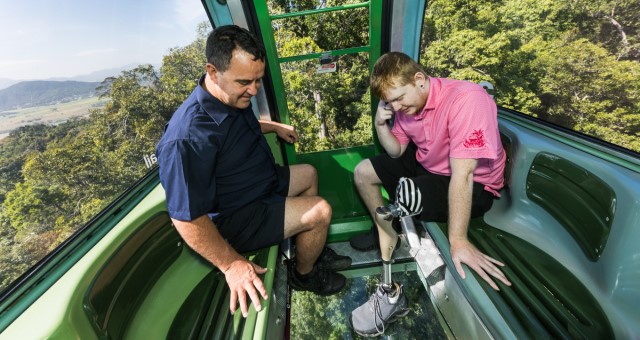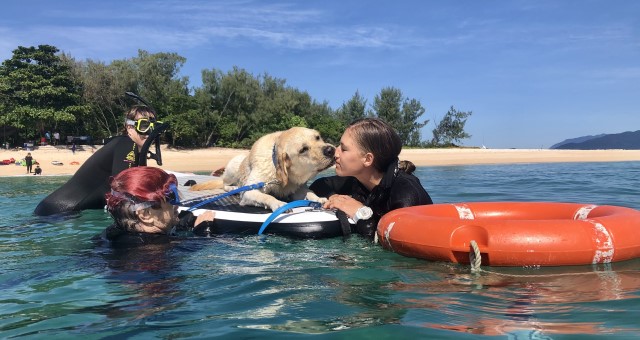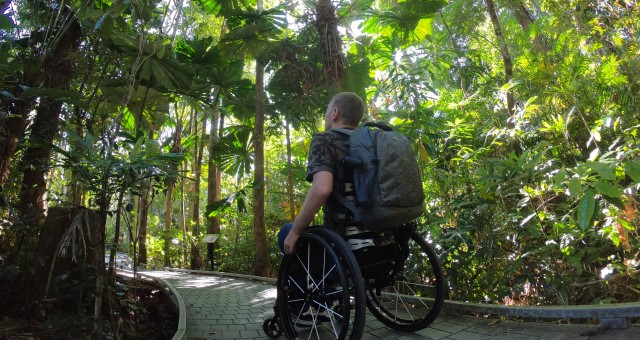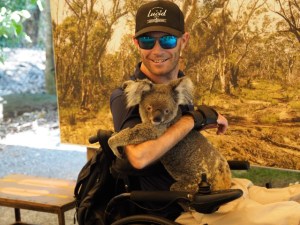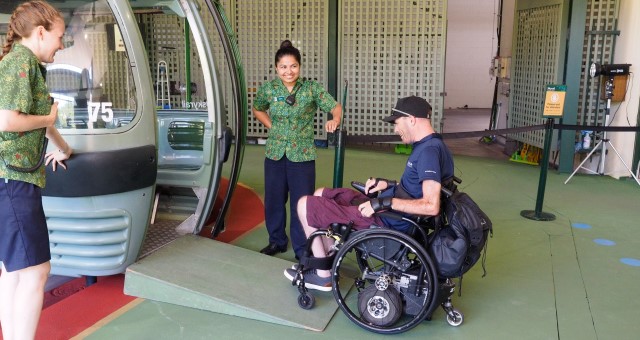Tourism Tropical North Queensland (TTNQ) is making it easier for people with mobility impairment to travel to the region by introducing an accessibility hub on the Cairns and Great Barrier Reef website.
TTNQ worked closely with Spinal Life Australia and Out There Travel Care to showcase accessible experiences and accommodation for travellers.
“It has been an informative exercise discovering wheelchair-friendly beaches, Quicksilver’s water-powered lift to lower people into the water so they can snorkel on the Great Barrier Reef, and which rainforest boardwalks are best suited to wheelchairs,” said Tourism Tropical North Queensland Chief Executive Officer, Mark Olsen.
“People needing to consider accessibility can now easily find accommodation options from specialised providers like Spinal Life’s Healthy Living Centre which has personal support workers to traditional hotels with accessible rooms such as the Cairns Novotel Oasis Resort.”
Mission Beach journalist Imogen Kars, who has lived experience of accessibility issues while travelling, reviewed accommodation and tours, and wrote a series of blogs on travel options in Cairns, Palm Cove, the Cassowary Coast, Port Douglas and the Atherton Tablelands.
Spinal Life Australia’s Senior Advisor Access and Advocacy, Dane Cross, said the accessible tourism market is a largely untapped opportunity for tourism operators.
“It’s been great to work with Tourism Tropical North Queensland on this project – and in our view, this is the best accessibility information available for any region in Australia,” he said.
“Often, tourism operators don’t know where to begin on their journey towards better accessibility – this workshop enables people to ask simple questions and find out more about where to begin. We’d love to help tourism operators understand how to be more accessible and to secure a larger part of this market.”
Olsen said it has been encouraging to see operators’ eagerness to learn about the opportunities in the accessible tourism market and hear from people with physical disabilities about what they are looking for in a destination.
“Research by Tourism Australia has shown that accessible tourism can be a game changer for destinations that will assist with post-pandemic recovery by building industry resilience,” he said.
“Treating accessibility as a competitive advantage that improves customer service and enhances quality of life for all is the key to tapping into the ageing, but still adventurous, Baby Boomers who have the time and resources to travel.”

